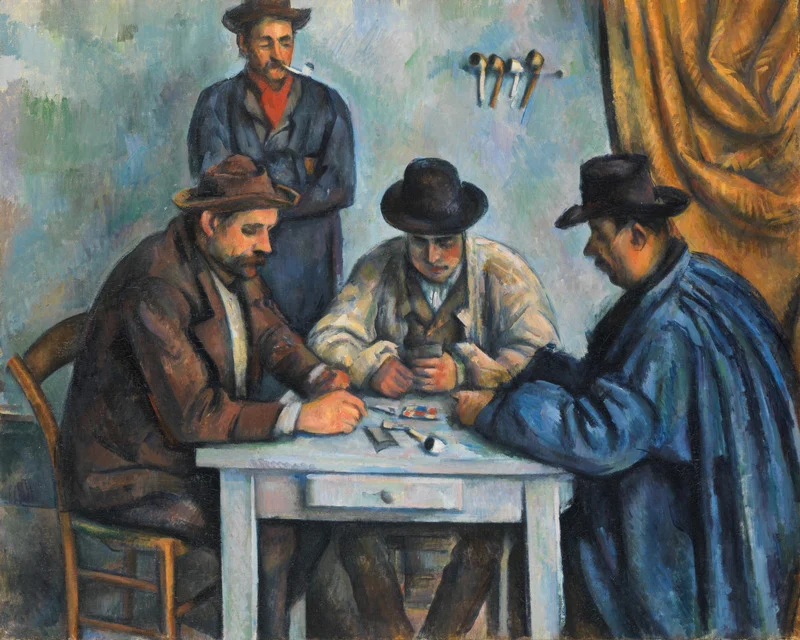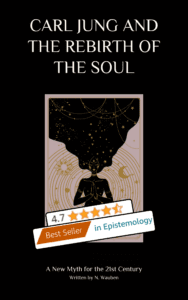Table of Contents
Introduction
After reading my previous article on Arthur Schopenhauer, you may have concluded that Arthur Schopenhauer’s philosophy was not the most encouraging: Schopenhauer believed that the world exists only as an idea within our brains, and that all that we do in this world, together with all the other existing organisms, is fuelled by an unsatisfiable will.
This will, according to Arthur Schopenhauer, is unsatisfiable because, a wish or desire, once fulfilled, will quickly result in a new wish or desire. Schopenhauer observed that happiness is characterized by the speed and frequency in which this circle is completed and restarted again:
“We consider ourselves fairly fortunate if there is still something to wish for, and to strive after, to keep up the game whereby desire constantly passes into satisfaction, and satisfaction into new desire – if the pace of this is swift, it is called happiness, and if it is slow, sorrow – and does not falter and come to the standstill that shows in dreadful, stultifying boredom, in lifeless yearning without a definite object, a deadening languor.” (The World as Will and Idea, p.85)
As a result, as long as we remain subject to this will, we find our selves in a constant struggle. We can, however, end our struggle, according to Arthur Schopenhauer, by freeing ourselves from will: “in individual people knowledge can elude this servitude, throw off its yoke, and free from all the will’s purposes, exist purely for itself, simply as a clear mirror of the world.” (p.78)
At the end of my previous article on Arthur Schopenhauer I promised to explain how we could free ourselves from this will in a later article. In this article I will be discussing exactly that: how can we transcend our will according to Arthur Schopenhauer?
Art and Will
Arthur Schopenhauer believed that art was one of the best ways to illustrate our struggle with will. Art can, at least for a moment ‘pause’ our will. This is the case because, according to Schopenhauer, art is unique. Unlike other productions or activities of us humans, art can reach its final goal, and therefore ceases to will. Science, for example, is always moving towards something, it can never be completed, and it can therefore never satisfy us: “Science, following the ceaseless and inconstant stream of the fourfold forms of reason and consequence, is with each goal it attains bidden to go further and can never reach a final goal, nor attain full satisfaction […] art, on the contrary is everywhere at its goal.” (p.108)
Art achieves its goal by removing an object from its context and presenting it to us simply how it is: “It plucks the object of its contemplation out of the stream of the world’s course, and holds it isolated before it.” (p.108) As a result, according to Arthur Schopenhauer, the object presented in art represents something much grander, it presents an object free from all relations, free from will: “This particular thing, which in that stream was a minute part, becomes for art a representative of the whole, an equivalent of the endless multitude in space and time. So art pauses at this particular thing; it stops the wheel of time, for art the relations vanish; only the essential, the idea, is its object.” (p.108)
Arthur Schopenhauer used the Dutch painters of so called still lifes as an example. These artists could make a painting of a seemingly uninteresting object extremely significant because they placed ‘knowing above willing’: “Inward disposition, the predominance of knowing over willing, can produce this state under any circumstances. This is shown by those admirable Dutch artists who directed this purely objective perception to the most insignificant object, and establish a lasting monument to their objectivity and spiritual peace in their pictures of still life.” (p.121)

The World as a Piece of Art
Sadly, we cannot continuously immerge ourselves in art, however, Schopenhauer observed that it might be worthwhile to look at the world in a similar way as how we look at art, that is, look at something without our will defining what it is that we see. Schopenhauer indicated that we mostly go through life paying attention to how the things that we see relate to our will: “He can turn his attention to things only in so far as they have some relation to his will, however indirect it may be.” (p.111)
As a result, it is difficult to really enjoy life as it unfolds before us: we only pay attention to the things for as long as they can provide satisfaction to our will i.e., for as long as they are useful to us: “In all that is presented to him [he] looks quickly, as the lazy man looks for a chair, merely for the concept under which it is to be brought, and then it interests him no further.” (p.111) As a consequence, Schopenhauer argued that it is difficult to genuinely enjoy something: “This is why he is so soon done with everything, with works of art, natural beauty, and with life’s spectacle from one scene to the next, truly meaningful as this always is. He does not linger; he seeks only his own way in life.” (p.111)
However, if we can manage to change the way in which we view the world, we might be able, according to Schopenhauer to escape our ceaseless will: “When some external cause or inward disposition lifts us suddenly out of the endless stream of willing, and snatches knowledge from the slavery of will, the attention is no longer directed to the motives of willing, but comprehends things free from their relation to the will.” (p. 120)
We can then observe everything that is happening around us without any regard to our personal interest. Therefore, according to Schopenhauer, we can move about in the world without being subject to will:“Thus, it observes them without personal interest, without subjectivity, purely objectively, and it surrenders to them in so far as they are merely ideas, but not in so far as they are motives. Then all at once the peace which we were always seeking, but which on the former path of the desires, always eluded us comes to us of its own accord, and we experiences a sense of well-being.” (p.120)
In a sense we would then merely be a spectator of the world and we would judge all the events that are occurring around us our within us as an objective spectator: “This liberation of our knowing lifts us as wholly and entirely away from all that, as do sleep and dreams; happiness and unhappiness have disappeared; we are no longer individual, the individual is forgotten we are only pure subject of knowledge; we are only that one eye of the world which looks out from all knowing creatures, but which in man alone can become perfectly free from our servitude to will.” (p.121) As a result, it does not matter whether one is rich or poor, it is of no difference to the spectator:“Thus all difference of individuality so entirely disappears that it is all the same whether the perceiving eye belongs to a mighty king or to a wretched beggar; for neither joy nor grieving is carried with us beyond that boundary.” (p.121)
Viewing the Present as the Past
Arthur Schopenhauer made another interesting suggestion; he suggested his readers to view the present as we view the past. According to Arthur Schopenhauer, when we consider the past, we only consider the objective reality of the past, and we forget about the subjective realities of the past.
As a result, it is often the case that past situations appear better than our present realities. This might, however, be false, according to Schopenhauer, because, when we perceive our present realities, our subjective experiences influence our perception: “When we are more than ordinarily disturbed by some want, the remembrance of past and distant scenes suddenly flits across our minds like a lost paradise. The imagination recalls only what was objective, not what was individually subjective.” (p.122)
If we can manage to focus on the objective in the present just as much as when we contemplate the past, we can relieve ourselves from a lot of suffering, according to Schopenhauer: “We can deliver ourselves from all suffering just as well through present objects as through distant ones as soon as we raise ourselves to a purely objective contemplation of them, and so are able to bring about the illusion that only the objects are present, and not we ourselves.” (p.122)
Conclusions
According to Arthur Schopenhauer we mostly go through our lives looking at all the objects in the world only in relation to our will i.e., we look at how far these objects can satisfy our will. This is problematic because it results in a constant struggle. Schopenhauer believed that we could end this struggle by viewing the objects in the world just as they are, without any interference from will. We must therefore look at the world and our own lives as a piece of art, of which we are the objective spectator. Doing so might appear rather submissive, as if we should simply accept our fate as it is.
However, it is interesting to note that Arthur Schopenhauer was heavily influence by Eastern writings such as the Upanishads: “Concealed in the heart of all beings is the Atman, the Spirit, the Self; smaller than the smallest atom, greater than the vast spaces. The man who surrenders his human will leaves sorrows behind, and beholds the glory of the Atman by the grave of the Creator.” (Katha Upanishad, Part 2)
If we can consider Arthur Schopenhauer’s philosophy in relation to Buddhism or Hinduism, we might see his solutions to our ceaseless struggle with will not as a submission, but more as a relaxation: “Thus it is that everyone can say, ‘I am, once and for all, lord of the present, and through all eternity it will accompany me as my shadow: accordingly I do not wonder where the present has come from, and how it happens to be taking place precisely at this time’.” (p.182)

